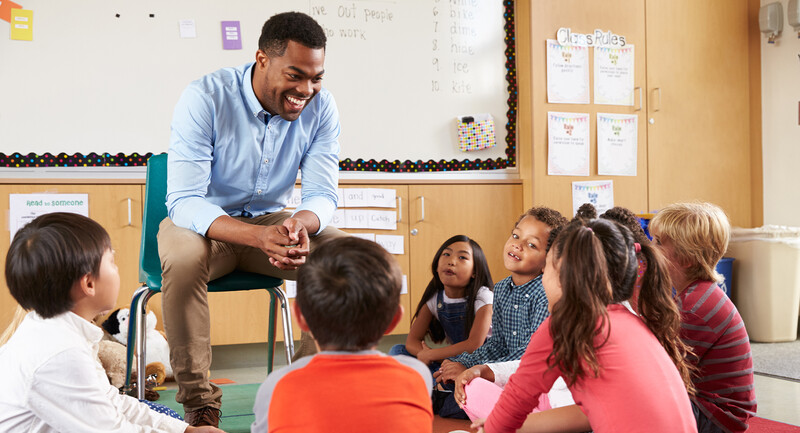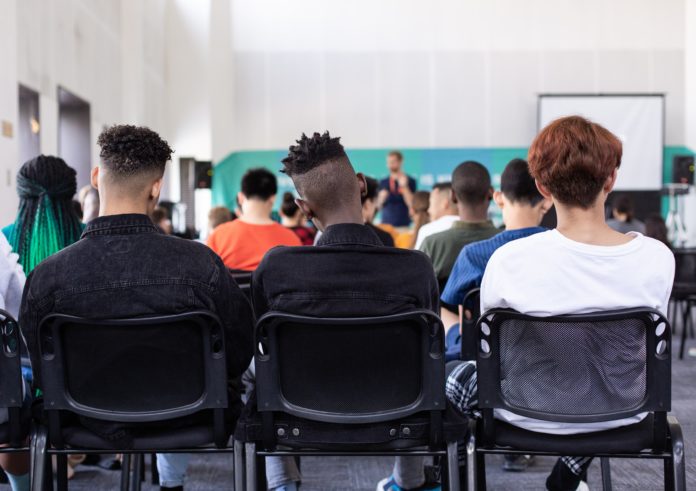Education is a human endeavor. It prepares the individual for life and for the future. It prepares them to make informed decisions. It helps them interact with others and to better understand themselves, our world, and their place in that world.
Education can develop an individual’s sense of belonging, and it can grow their sense of purpose or meaning. And the most effective schools do this during the individual’s education itself, inserting lessons into the active life of the school, as well as embedding those lessons in their school community.
Education is a human endeavor. At its core are relationships, the ability of one individual to connect and understand another. The ability to develop the potential of each individual and at the same time develop the sense of community and togetherness. The ability to help each person understand who they are, in the context of a group or on their own.
The best educators develop strong relationships with their students. They understand who their students are and what will spark their interest. They read their emotions, they read the climate of the group, and adjust their teaching to suit. They understand the cultural differences between them and their students, and between one student and another student. They share stories, discuss events, and develop relationships. They do all this by allowing themselves to be human.
Yet, we are still trying to push being human out of education. We seek ways of improving “time on task” by reducing interactions; by filling the curriculum with more facts, standards, and benchmarks; by increasing class size, all the while forgetting how we learn and why we are learning.
Our accountability systems are still geared toward measuring facts when we know we should be measuring learning, growth, and development as a person. We still argue about whether a test score is worthier than a well crafted debate rebuttal. Whether the correct algebraic answer is more important than a piece of music. Whether learning a new idea is more important than memorizing an older one. We still question whether students should have a voice in decisions that impact their own learning. And across our systems, we still hold up archaic measures of success to prove that the child is now ready and able to “enter the real world,” often with little experience or understanding of how the real world actually functions.
Rather than persevering with outdated measures of success, we should focus on developing the skills and aptitudes that we know our children will need. These are the skills that have been cited, repeated, and repeated again, by countless think tanks, economics, and futurists. They are the skills and aptitudes that make us human – the intrapersonal, the interpersonal, collaboration, and creativity.
Since the turn of the millennium we have read and heard about the need to focus more on the human side of education. Whether this comes from economic institutions or education policy pieces, the call for 21st-century skills is now 20 years old and for 20 years we have been calling for a more human approach to education.
The following works share the commonality of calling for schools to develop intrapersonal and interpersonal skills; of the individual seeing themselves as part of a larger space, community, world; and of using knowledge for actions and purpose.
- The ability to use language, symbols and text interactively.
- The ability to use knowledge and information interactively.
- The ability to use technology interactively.
- The ability to relate well to others.
- The ability to cooperate.
- The ability to manage and resolve conflicts.
- The ability to act within the big picture.
- The ability to form and conduct life plans and personal projects.
- The ability to assert rights, interests, limits and needs.
- Deep self-knowledge: Individuals will need to continue to discover their own personal and professional strengths, weaknesses, passions and emotional patterns.
- Emotional regulation: Workers will need to be able to recognize their own emotions, understand the triggers that create them and move to more productive emotional states.
- Empathy and perspective taking: People will need to be able to recognize others’ emotions and perspectives to help build inclusive, collaborative work environments.
Brookings Institute – Education System Alignment for 21st Century Skills (2018) (Adapted from UNESCO (2016)
- Critical and Innovative Thinking
- Interpersonal Skills
- Intrapersonal Skills
- Global Citizenship
- Physical and Psychological Health
These lists include skills and outcomes that can only be developed through the human side of the education process. They highlight the truth that in order for education to be purposeful, it must have meaning; and for it to be meaningful it must have a purpose.
For too long education has lagged behind our changing world and needs, but education is the only tool we have to create and develop the future.
ASCD has been stating this for a while now, but education must take the human into account. It must help teach and develop human competencies; it must help us understand ourselves, others, and the world around us; and it must draw out what truly makes us human.
As the Organisation for Economic Co-operation and Development states in OECD Future of Education & Skills (2018),
We are facing unprecedented challenges – social, economic and environmental – driven by accelerating globalization and a faster rate of technological developments. At the same time, those forces are providing us with myriad new opportunities for human advancement. The future is uncertain and we cannot predict it; but we need to be open and ready for it. The children entering education in 2018 will be young adults in 2030. Schools can prepare them for jobs that have not yet been created, for technologies that have not yet been invented, to solve problems that have not yet been anticipated. It will be a shared responsibility to seize opportunities and find solutions.
To navigate through such uncertainty, students will need to develop curiosity, imagination, resilience and self regulation; they will need to respect and appreciate the ideas, perspectives and values of others; and they will need to cope with failure and rejection, and to move forward in the face of adversity. Their motivation will be more than getting a good job and a high income; they will also need to care about the well-being of their friends and families, their communities and the planet.
Sean Slade is senior director of global outreach at ASCD.
This article is part of the Whole Child for the Whole World series. ASCD envisions a world in which all young people grow up with educational experiences that empower them to realize their full potential (whole child) as active contributors to our collective well-being (whole world). Together we can change much – we can help each child reach their full potential, becoming global citizens who see themselves as guardians of the world they live in.
Sean Slade is an education leader, speaker, and author, with nearly three decades of experience in education in the U.S. and globally. He serves as Head of BTS Spark, North America, the social impact arm of BTS focusing on educational leadership development. Prior to BTS Spark, Sean was senior director of global outreach at ASCD, where he launched and grew the ASCD Whole Child Network across 56 countries and led the development of the Whole School, Whole Community, Whole Child Model (WSCC) with the CDC. His latest book is The Power of the Whole: What is Lost by Focusing on Individual Things.








